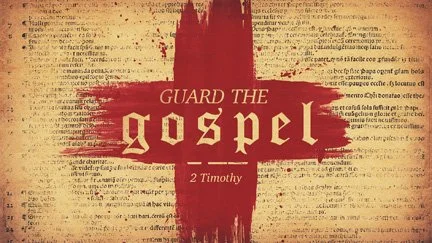Exodus 2:1-10; Exodus 15:19-21; Numbers 12:1-15
I’m not sure why, but I always picture Miriam somewhat like Bette Midler, sort of brash and plain-spoken, with a beautiful singing voice, and an air of self-confidence. We don’t have very much information about Miriam in the Bible, and she only appears in three lengthy passages. Other than those, she is mentioned in Micah 6:4 as a prophet, along with Moses and Aaron; and her death and burial at Kadesh are recorded in Numbers 20:1.
We first meet Miriam in Exodus 2. The backdrop for the story is that the Hebrew slaves had grown in number to the point where Pharaoh felt threatened by their numbers. So he issued an order that all boy babies born to the Hebrews were to be thrown in the Nile River and drowned. At that point, we learn that a couple who were both of the tribe of Levi had a son, whom they managed to keep hidden for three months. Then his mother put him in a basket among the reeds along the bank of the Nile and Miriam stood a distance away to see what would happen to him.
As it turned out, things turned out pretty well for the baby. Pharaoh’s daughter happened to come along to bathe in the river. She saw the basket and she knew that it must be a Hebrew baby hidden there, and she felt sorry for him. So she decided to adopt him. Miriam asked Pharaoh’s daughter if she should bring a Hebrew woman to nurse the baby, and she said yes. So Miriam went and got their mother and brought her to Pharaoh’s daughter, who gave the baby to his own mother and told her to take him and nurse him and she would pay her. When the baby got older, his mother took him to Pharaoh’s daughter and he became her son; she named him Moses, which means “draw out,” because she drew him out of the Nile.
There are a couple of things that we learn about Miriam from this story. First, we learn that she was brave. It took courage to stand there and watch over her brother. If Pharaoh’s soldiers had come along and discovered the baby, they surely would have killed him and maybe Miriam, too, if they thought she had hidden him there. It also took courage to approach Pharaoh’s daughter and speak to her. Again, the woman may have not had good intentions toward the baby, and Miriam could have been punished for her role in hiding him. But Miriam was bold enough to speak to this royal woman and propose a plan that kept Moses with his mother for awhile longer, while getting paid for taking care of him! That courage and boldness would come in handy later in Miriam’s life.
The next time we encounter Miriam it is in Exodus 15:19-21, just after the Israelites had crossed the Red Sea. After experiencing the plagues sent by God, Pharaoh had decided to set the Hebrew slaves free, and they had left Egypt. But later on he changed his mind, regretting that he had let all that free labor get away. So he took his chariots and his army and he set out after them. He eventually trapped them at the Red Sea. But God provided an escape route for his people – he dried up the sea so that they could walk across on dry land. Then, when Pharaoh followed them, God caused the sea to return and drown the entire army. Moses sang a song of victory, and then Miriam, who is referred to as a prophetess, also sings a song.
The Song of Miriam is regarded by scholars as being very old and is perhaps the oldest Israelite poem we have. It may have been composed very close to the time that the event took place. Miriam led the women in dancing and singing. There were women among the Israelites who were skilled in the singing that was required at times of death and grief, and in the same way others were skilled in singing and dancing with joy at times of victory and liberation. At the Exodus, it was surely a time for singing and dancing.
The most important thing to note about Miriam in this passage is that she is referred to as a prophetess. That doesn’t mean someone who prophecies about the future. Prophecy in those days meant bringing a word from the Lord or preaching and teaching about God. It was a term of respect and position. Miriam was an important leader among the Israelites and would have been seen as being in a place of honor.
We next meet Miriam in Numbers 12. Miriam and Aaron had become upset with Moses because he had married a Cushite woman. They felt that he should not have married a foreign woman. They talked between themselves about it, and said, “Has the Lord spoken only through Moses? Hasn’t he also spoken through us?” In other words, they put themselves in equal positions with Moses. Well, the Lord heard them talking and called Miriam, Aaron and Moses to come to the Tent of Meeting. There, through a pillar of cloud, like the one that led the people through the wilderness, God spoke to Aaron and Miriam. He said the Moses was faithful and that he spoke with Moses face to face. Then he asked, “Why then were you not afraid to speak against my servant Moses?” God was angry with them.
When the cloud lifted, Miriam was left with leprous skin, as white as snow. I have no idea why Miriam was punished in this way but Aaron was not. One commentator suggests that because Miriam is mentioned first at the start of the chapter, which was not normal for that time, perhaps she had taken the lead and Aaron followed along. Miriam was clearly a person of importance who played a larger role in Israel’s history than what we find in scripture. Aaron appealed to Moses that he not hold against them the sin they had so foolishly committed against him. Then Moses asked God to heal Miriam. God said that Miriam was to be banished from the camp for seven days, a public shaming and what was required for someone considered unclean. The people waited until this time was over until moving on.
What we learn about Miriam here is that, as great a leader as she was, she did have faults. Her mistake here was her pride, I think; she felt equal to Moses, or at least close enough to being his equal to question his behavior in marrying the Cushite woman. She wanted to hold him accountable for his actions and she was going to confront him. But God intervened on behalf of Moses and let Miriam and Aaron know that Moses did have a higher position than theirs. They should not think too highly of themselves.
We don’t know much about Miriam, but what we do know is powerful. Miriam was a prophetess, a leader among her people, during a challenging time in their history. Yes, they had been given their freedom, but they had a long way to go to get to their new homeland. They needed leaders like Miriam: courageous, bold, and also fallible, like us. She was revered by her people as a prophetess and leader, and we should also give her our respect and honor as a woman of significance.











